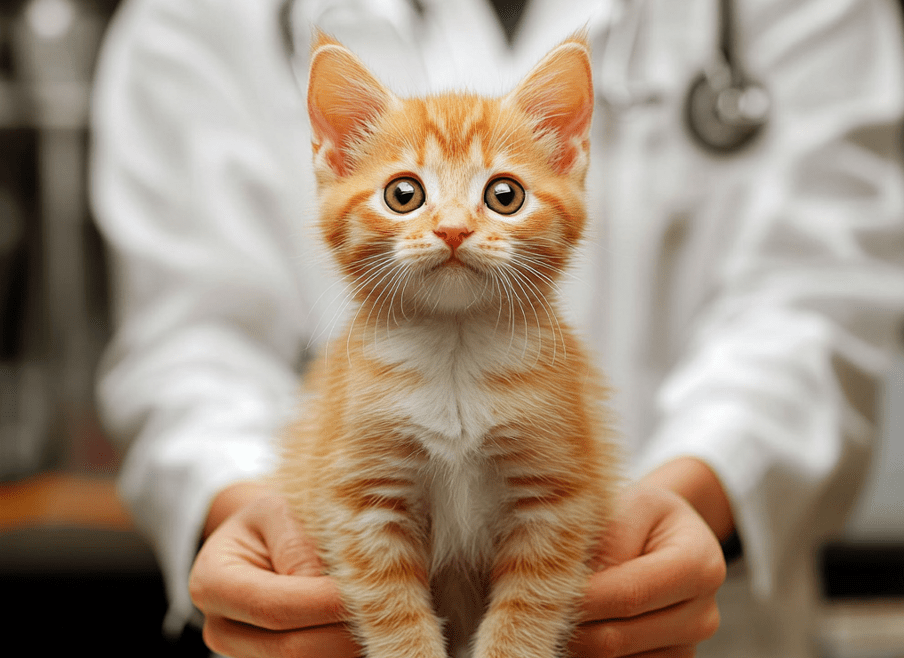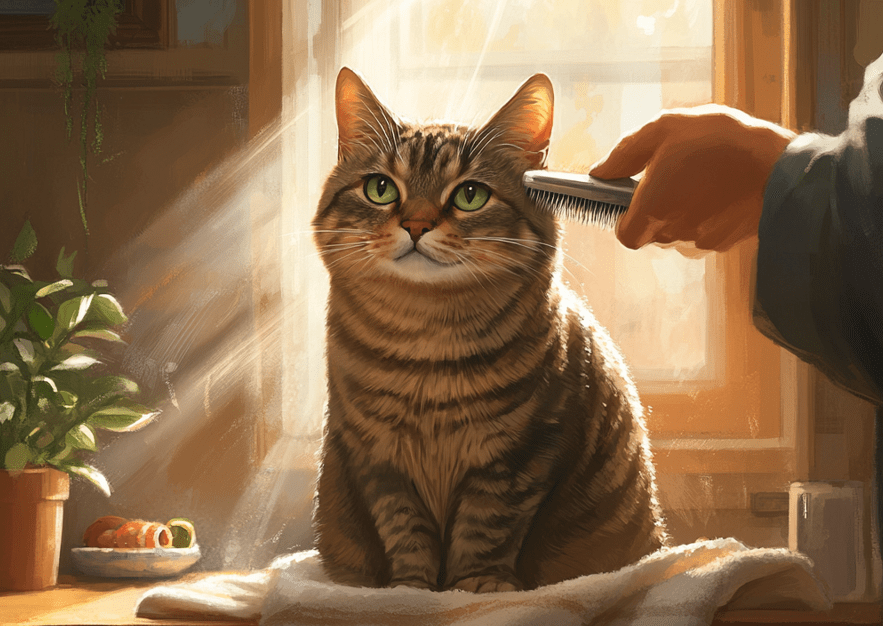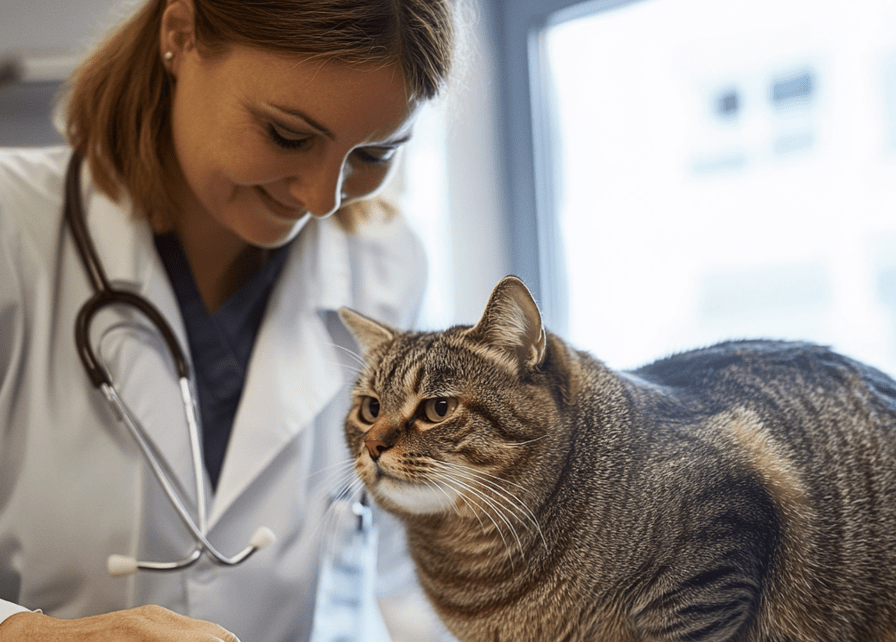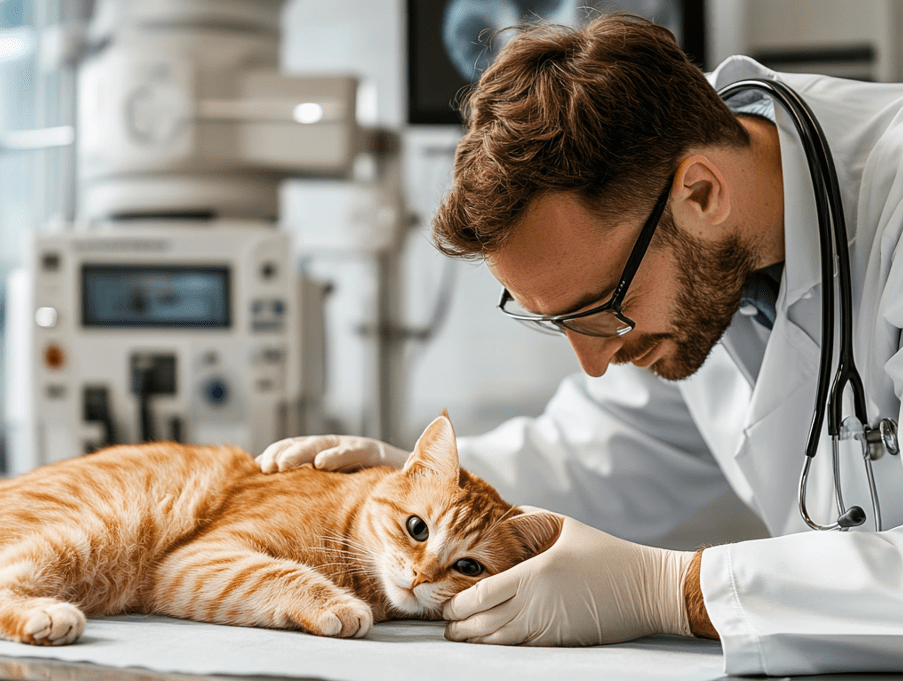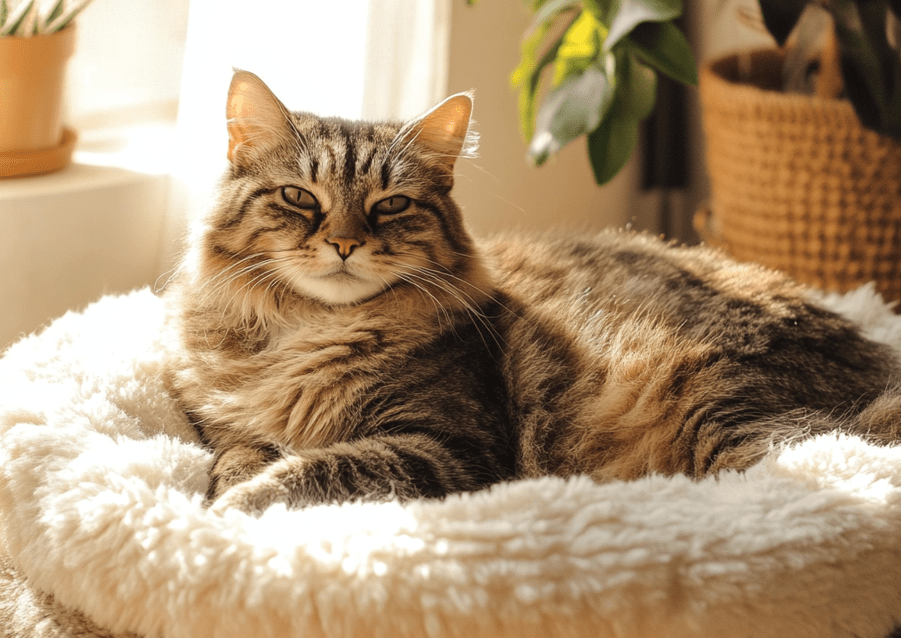
According to the wisdom of folk on the Earth, life with sickness is considered to be the same as life in hell. Not only for people but also for each animal. Similarly, There is a proverb, “The old era is the golden era.” As cats age, their care requirements evolve, necessitating a proactive approach to health and well-being. “Preventive Measures for Senior Cats: Ensuring a Healthy and Happy Golden Age” emphasizes the importance of tailored care to address the unique needs of senior cats. Annual physical exam, diet, and food intake, weight, and all other thorough health care such as vaccinations and flea/tick control are imperative. Also, mental and physical fun with the senior cats, as well as comfortable stress free environments form the basis of a good enhanced quality of life for the cats. Therefore, by adherence to these preventive measures, our feline companion should be able to live a healthy, joyful senior life.
To watch the summary of this article, just watch this video-
Understanding the Needs of Senior Cats
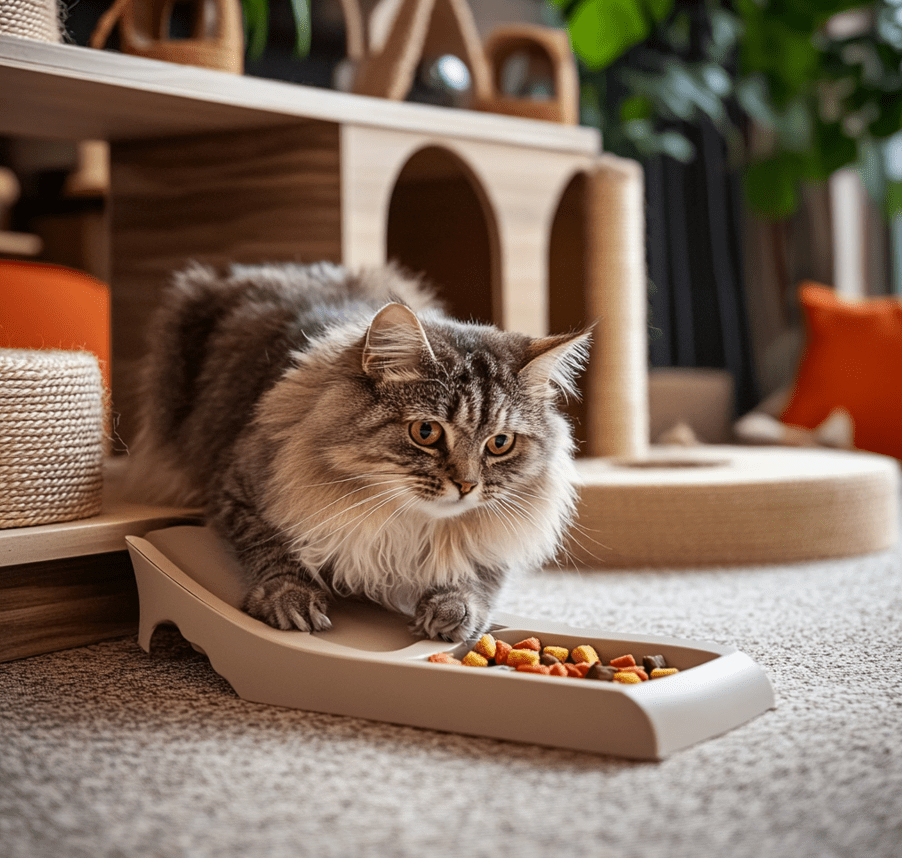
Cats also go through many different life stages and their needs are different than, for example, those of kittens or senior cats. It’s thus important that all the needs are well understood and met in order to afford the best quality of life to the senior cat.
Knowing those requirements will enable cat lovers to ensure senior cats live the best life they can possibly have. Daily exercise, proper diet, physical and mental activity and freedom from stress constitute the fundamental principles which should be followed for their welfare.
1.Regular Veterinary Check-Ups
It is important to understand that senior cats are mostly at risk of developing ailments like arthritis, periodontal disease, renal disease, diabetes, and more. That means that frequent check-ups with the veterinarian is important in order to diagnose and treat them at an early stage. The cats should be taken to the vet every six months and blood pressure, blood sugar, kidney and liver function, and a urine test should be conducted as well.
2.Proper Nutrition
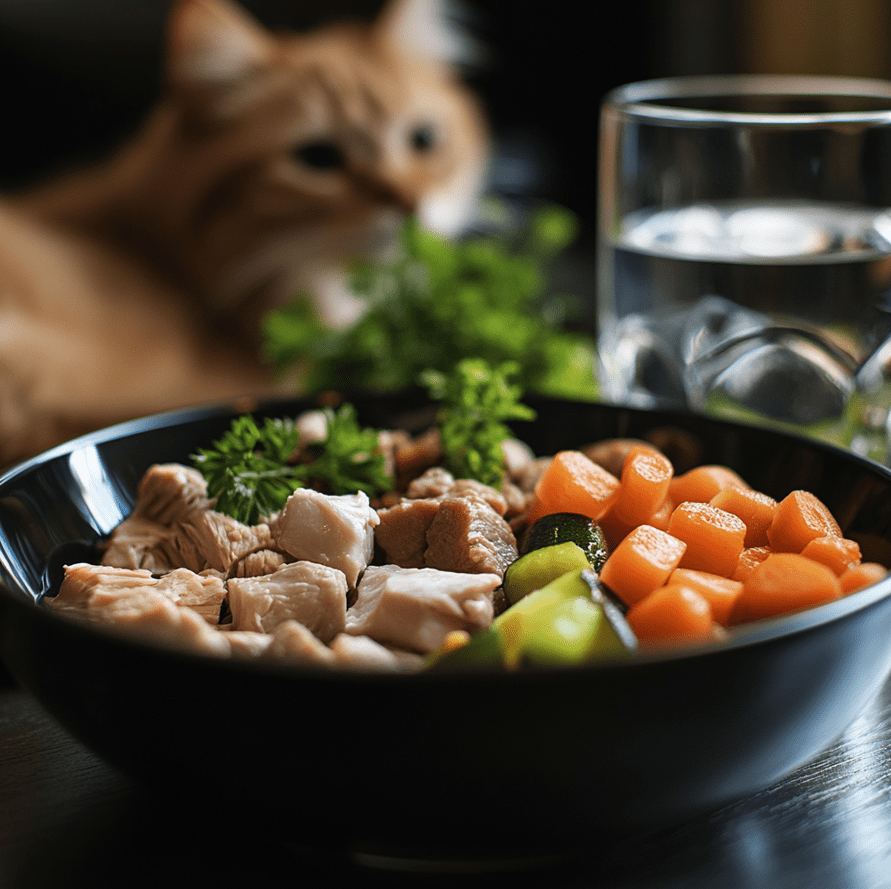
Cats undergo different phases and as such, the diets vary depending on the age they are in at any one time. Older cats must take foods with fewer calories but with plenty of protein to help them support their muscles. A variety of senior cat foods is enriched with additional additives to help cats’ joints, digestion, and energy level. You should always consult with the vet before finalizing on the diet of your elderly cat.
3.Hydration
The main symptom, dryness, is indicative of kidney disease and common among the feline elderly. Alway provide fresh water to your senior cat to drink. They should be given water from the water fountains or include small portions of wet foods in their diets.
4.Comfort and Mobility
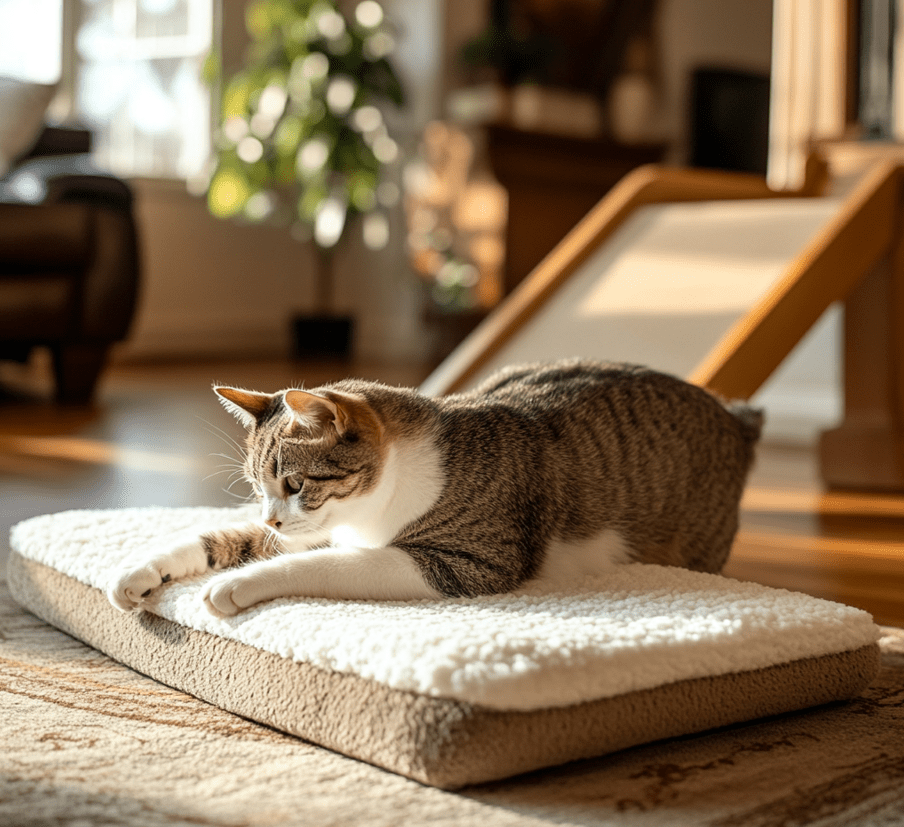
Lacks of mobility and arthritis are familiar diseases in cats especially those that have reached senior status. They should have soft and comfortable beddings and in r everyone should be able to comfortably access their comfy areas. √ They should be able to climb up tackle steps to avoid straining in their efforts to climb higher surfaces using ramps. It also allows them to keep active, with strong muscles and healthy bones, by taking brief, gentle walks on a daily basis.
5.Dental Care
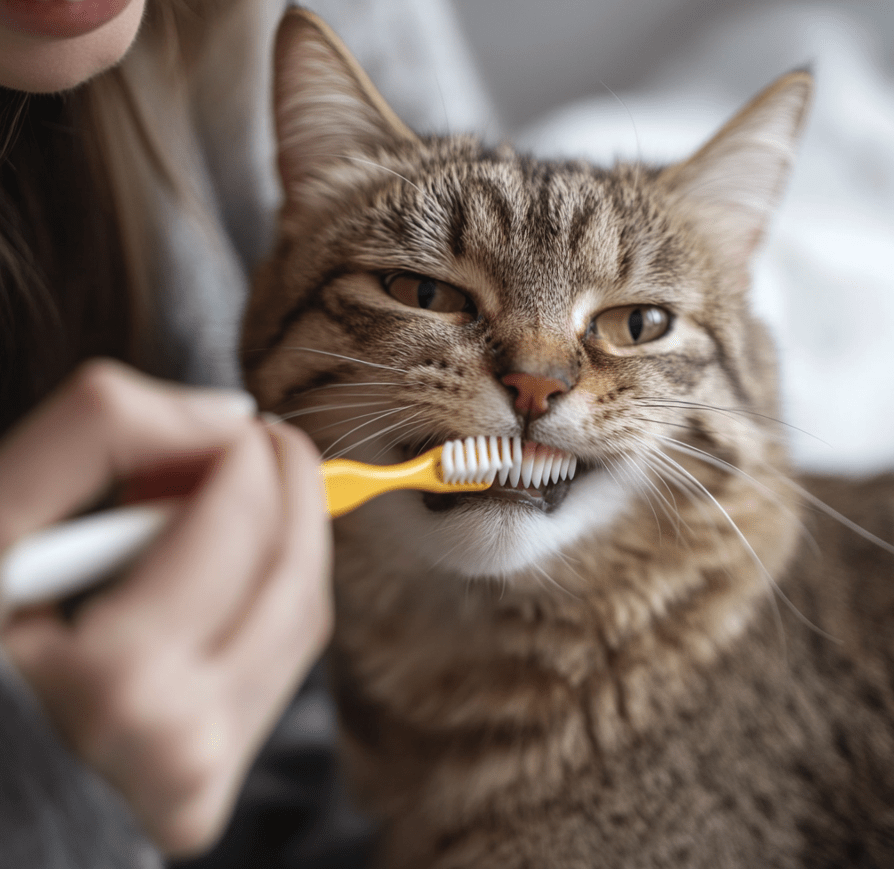
Feline oral disease is common in cats over seven years of age and can cause discomfort and other problems. Cleansing and appointments with the dentist, whether just check-ups, are necessary. At home, you can clean the teeth of the cat that is why it is necessary to give your cat some dental treats or dental toys.
6.Play, Learning, and the Brain
Stimulation should continue to be given during the cat’s senior years because it helps to reduce incidences of dementia. It is always essential to keep their brains engaged and there are certain ways of achieving it: Interactive toys, puzzle feeders and gentle play sessions. Also, taking them out in a new environment that exposes them to new smells, new views, and new sounds will help their mental health to improve.
7.Routine Grooming
Senior cats may also have problems with grooming in case they develop arthritis or any other disease. They should be brushed often to avoid the coat matting and retain healthy coat condition. Since it may be difficult for them to groom some parts of their bodies such as abdomen, rump and tail, you should focus on those areas.
8.Litter Box Accessibility
Try to place the litter box in convenient places that the cat can get to with ease if he has mobility problems. If this is the case you may want to use a litter box with lower sides than the traditional one so that the cat can get in and out all by itself. Clean the litter box frequently and provide it in a low traffic area that’s easy to access.
9.Screen for Behavioral Shift
As usual, you should carefully watch their behavior because it can tell a lot about their health. Any variations in eating, drinking, litter use, grooming or activity must be communicated to the vet. Preventive care is useful when dealing with age related disorders since, there are disparities between the onset of the disorders and their complications.
10.Promote the creation of a no-stress culture.
Pet elderly cats require structured environments and do not appreciate frequency changes. Avoid changing their routine and environment patterns as much as is possible to reduce their level of stress. Make sure that when they want to be alone or avoid other people they can have a safe comfortable space to do so.
Routine Veterinary Care
Most of the cats’ illnesses can be prevented through proper veterinary checkups as a routine. Healthy and appropriate shedding also means planned examinations and prophylactic procedures that allow you to notice and eliminate possible pathologies in a timely manner, which will add more years to the life and health of your pet.
It is recommended to visit your vet at least once a year and your cat should undergo an examination. If your cat is senior or has constant health issues it may require more examinations. Vaccinations are important for your cat to prevent diseases; core vaccines for cats include feline distemper virus, herpes virus and rabies. Core vaccines may be provided at recommended intervals accompanied by non-core vaccines that are based on the lifestyle and risks associated with the pet.
Parasite control is crucial, involving treatments for fleas, ticks, and worms. Dental health is also vital; regular dental check-ups and cleanings prevent oral diseases. At-home dental care, such as brushing and dental treats, supports healthy teeth and gums.
During routine visits, your vet will evaluate your cat’s diet and nutritional needs. Healthy nutrition ensures health optimum weight, the growth and development and it does away with diseases. The patient also needs to avoid weight gain since extra pounds cause diabetes, arthritis, and heart complaints.
Common blood tests also enable doctors to identify other conditions such as kidney or liver problems, diabetes and thyroid problems. Due to that, there is time for newcomers to be managed well to increase the chances of a favorable outcome. It is crucial to manage an ongoing health problem: diabetes, hyperthyroidism, and other chronic conditions.
Owners can consult on managing these problems, while signs of stress, anxiety, or related issues are detected during the behavioral assessments during vet visits. The old cats should be seen more often because of age-typical diseases such as arthritis and early signs of dementia.
Regular preventive veterinary check-ups make sure your cat enjoys a healthy life hence be sure to keep them up.
Optimizing nutrition for senior cats:
The goal here is to discuss the importance of achieving an optimal nutritional status of the felines to enable them afford the age quality life. There is a significant difference in feeding requirements in senior cats compared to that of the younger cats because the bodies are changing. Protein is an essential nutrient and for muscles to be maintained, lean and quality protein should always be used. Always consider foods with quality meats namely chicken, turkey, fish among the first ingredients of the cat’s feed.
Caloric intake should be adjusted to prevent weight gain, as older cats tend to be less active. Senior cat foods are often formulated with lower calorie content while still providing the necessary nutrients. It’s important to monitor your cat’s weight and adjust portions accordingly. Easily digestible ingredients and added fiber can support healthy digestion, which becomes more important as cats age. Ingredients like prebiotics and probiotics can enhance gut health and nutrient absorption.
Joint health is a common concern for senior cats, so foods containing glucosamine, chondroitin, and omega-3 fatty acids can help maintain joint function and reduce inflammation. Kidney health is another critical aspect; senior cat foods often have reduced phosphorus levels to support kidney function. Ensuring your senior cat stays hydrated is also vital. Incorporating wet food into their diet or using water fountains can help increase water intake and prevent dehydration.
Dental health should not be overlooked. Softer food options or specially designed kibbles can be easier on aging teeth and gums. Regular dental check-ups are essential to maintain oral health. Monitoring your senior cat’s weight, providing balanced nutrition, and adjusting their diet based on their specific needs, in consultation with your veterinarian, will help ensure they remain healthy and comfortable in their senior years. Proactive and attentive care will significantly contribute to the quality of life and longevity of your feline friend.
Promoting Mental and Physical Stimulation:
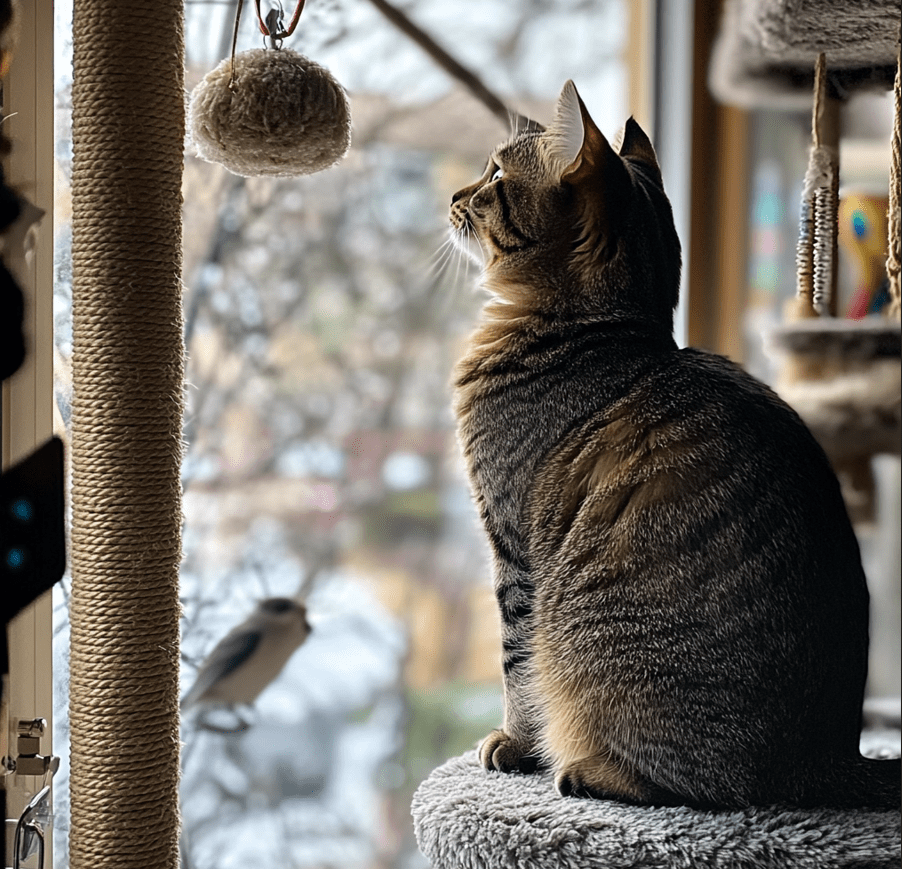
It is essential for any self-respecting feline to receive adequate genesic and physical activity in order to live a healthy life. String toys such as feathers and laser pointer toys act like Retrieval toys and also caters for their hunting needs during interactive play sessions. Puzzle feeders and toys help your cat to work his mind out and earn a snack or food in the process. Cat trees and shelves are important because they provide for vertical mobility; in cases like these the cats can come close to the effects of outdoor play, which consists in climbing and thus getting both exercise and mental stimulation. Scratching posts are to facilitate exercise as well as to fulfil the instinctual scratching movements.
Window perches give your cat a view of the outdoors, keeping them entertained by observing wildlife. Regularly rotating toys keeps their playtime exciting and prevents boredom. Training your cat with positive reinforcement techniques and setting up enrichment activities, like hiding treats, can keep them engaged. Spending quality time with your cat through play, grooming, or cuddling enhances their emotional satisfaction.
Toys, gym and catio are some of the ways recommended indoor solutions as well as walks on a leash. Hence, there is a properly fixed feeding, play, and grooming schedule for the baby to reduce unnecessary stress and anxiety. The implication of these tactics will help to make sure that your cat is happy, healthy as well as its brain engaged.
Creating a Senior Cat-Friendly Environment
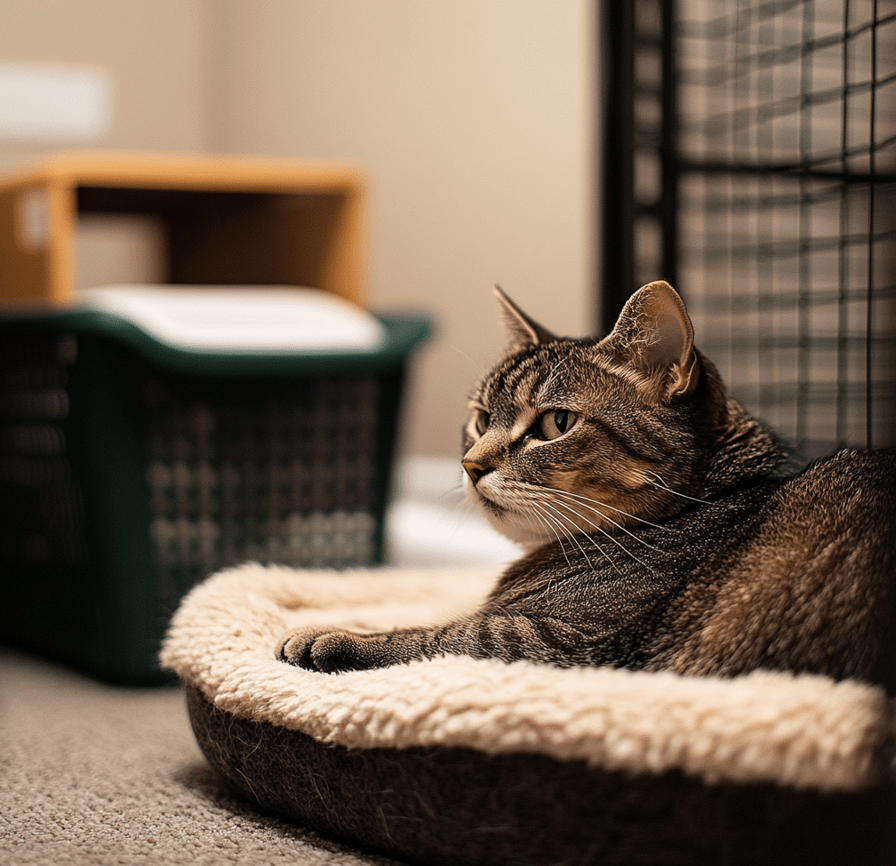
Establishing an environment that is safe, comfortable and happy for aging cats helps to keep your elderly cat well. Here are some key adjustments to consider:
Accessible Resting Spots
Make resilient, softer and easy to access synthetic surfaces depending on their flexibility to offer resting areas to persons with limited mobility. Avoid placing beds at high places, this will help reduce the risk of students falling off the bed with serious injuries.
Easy Litter Box Access
See that all litter boxes are well accessible, that cats can get into and out from comfortably. They include the ones with lower sides and recommend using them in different parts of the house to ensure easy access.
Temperature Control
Keep your home within a comfortable temperature. Ensure there are comfortable areas especially during the colds, have heated beds or pads on the floor.
Regular Grooming
Feed – this may be complicated especially if the cat is old and may need help while grooming. The coat is very thick and they groom themselves frequently but by brushing them regularly they do not get to develop matting.
Nutritious Diet
Select a diet of cat food for senior cats with regard to joint care, kidney support, and cat overall health. You should consult the veterinarian who will advise you on what to do next.
Hydration
Make it a practice to have easy availability of the freshwater. For example, use a pet water fountain or wet food for your pet in an effort to encourage it to drink water.
Mental Stimulation
Play with your older cat and always look for toys that are less straining on their joints. Puzzle feeders can engage their mind in a way that, Sometimes solving a puzzle feeder can help keep their minds involved.
When these changes are implemented you are able to provide a comfortable environment suitable for your senior cat hence improving their lifestyle as they age.
Recognizing and Addressing Common Health Issues
This article underlines the importance of allying such common health problems in cats as obesity, dental diseases, and other feline diseases. Here are key signs and actions to take:
Dental Disease
Signs: These include: halitosis, salivation, dysphagia and slow eating. Action: By going to the dentist’s office and brushing their teeth.
Obesity
Signs: Obesity, immobility or the inability to walk properly. Action: protein, carbohydrates, diet, fresh foods, physical activity, moderations.
Kidney Disease
Signs: Polydipsia, polyuria, polyphagia. Action: Exercise and proper feeding, vaccinations and annual check-ups, worm infestations, heartworms and fleas.
Diabetes
Signs: Polydipsia, polyphagia, weakness. Action: Unicode injections, low calorie intake.
Arthritis
Signs: Stiffness, reduced activity. Action: Supplements, vitamins for the joints, easing of ramps and pain management.
Hyperthyroidism
Signs: Weight loss, hyperactivity. Action: Drugs, food, or a knife.
Urinary Tract Issues
Signs: Difficulty to pass urine, pain and discharge of blood after passing urine. Action: Prompt veterinary treatment.
Respiratory Infections
Signs: This will include sneezing, coughing, nasal discharge, amongst other conditions. Action: Host affordable environment, vet services.
The Role of Preventive Measures in Prolonging Life
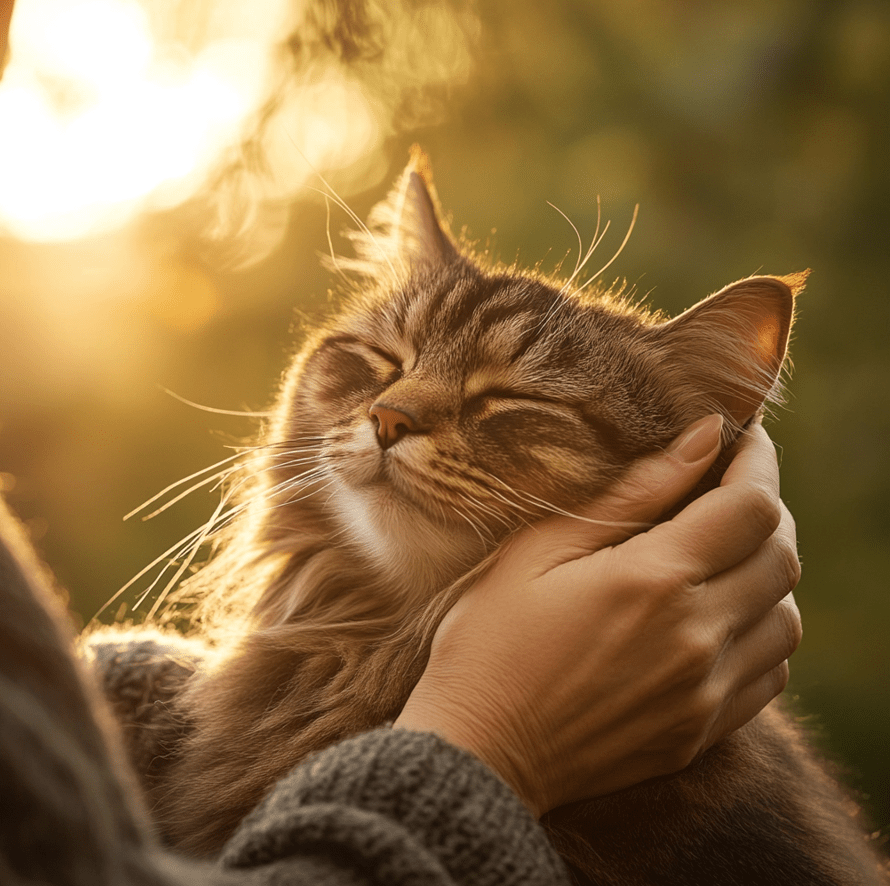
It is all in an effort to ensure that a cat lives longer with a qualified chance of clinical complications showing up sooner than later. Annual physical examination of your cat is an important factor in the prevention of health complications that may arise out of unnoticed health issues in your cat. Immunisations are used to prevent the spread of diseases while protection from parasites helps to avoid the diseases that are caused by fleas, ticks and worms.
Proper nutrition tailored to your cat’s age, weight, and health status is vital for maintaining overall health and preventing conditions like obesity and diabetes. Dental care, including regular check-ups and at-home brushing, helps prevent oral diseases that can lead to pain and infection.
Cholesterol, diabetes, arthritis, and heart diseases are averted through lean practices that include balanced diets and exercises. Stimulation of your cat’s mental and physical abilities, through playing and environmental interaction makes your cat to be very active.
Water is important in the maintenance of your cat’s kidney health and overall well being and as such, it is crucial you make sure your cat drinks lots of water. Over time, any changes that the cat goes through in terms of behaviour, eating habits, or physique can be detected early and necessary action taken to deal with the arising health complications avertable.
With these precautions in place, the cat’s life can be greatly improved to the level in which it has a long, healthy and happy life.

